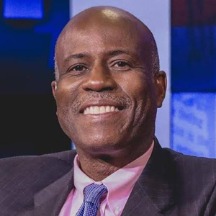My mother’s side of the family came from Miragoâne, the coastal southern city whose economy was bauxite. We have a range of hues across the skin color spectrum — from my uncle Lionel Duval, who could pass for white, if he wanted, to my dark mocha. We were close-knit, with Lionel being the patriarch and the family’s counselor. .
My mom always spoke reverently of my uncle because he pushed her to excel. He was very proud of me too. When I became a professional, he would swoon or call for a chat after seeing me on television or reading one of my stories. That’s just the way he was. He embraced his family’s diversity of skin color.
Strangely, this is not common in Haiti, and I never realized truly how special he was until the events that unfolded in Haiti last week. Our family’s multi-color bond was the exception, not the rule in Haiti.
The torture and assassination of president Jovenel Moïse by unknown assailants laid bare the reality in Haiti in ways that we can no longer hide. Contrary to popular belief, Haiti is not a Black country. It is a modern-day Apartheid state where a small minority of White people lord over the mass of the population who are Black.
Haitians Can No Longer Hide Behind The Caste System Killing Our Country
Features


To try to explain this any other way is intellectual malfeasance. Haiti is presented either as an example of Black rule or, in White supremacist circles, of Black people’s inability to govern. I get asked the question in polite company: “Why is Haiti ungovernable?”
The answer is that it is by design. It is set up that way. Haiti is ruled not by the Black faces who are elected. It is governed by a small cabal of oligarch families who migrated to Haiti. They are known as BAM BAM, phonetically in Creole “Gimme, Gimme.” The acronym stands for the Brandt, Acra, Madsen, Bigio, Apaid and Mevs families.
Read More
The answer is that it is by design. It is set up that way. Haiti is ruled not by the Black faces who are elected. It is governed by a small cabal of oligarch families who migrated to Haiti. They are known as BAM BAM, phonetically in Creole “Gimme, Gimme.” The acronym stands for the Brandt, Acra, Madsen, Bigio, Apaid and Mevs families.
A Primer on Haiti’s Wealthiest
These families control 90% of Haiti’s wealth and give a veneer that Haiti is a Black-run country when in fact they control virtually every business and entity in Haiti. They allow the political class to exist to protect their narrow personal interests.Read More
Advertisers | Contact Us | Events | Links | Media Kit | Our Company | Payments Pier
Press Room | Print Cover Stories Archives | Electronic Issues and Talk Radio Archives | Writer's Guidelines






